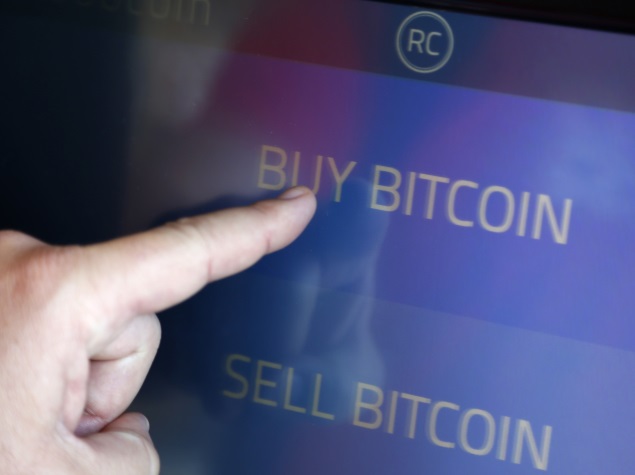- Home
- Internet
- Internet News
- New York Proposes Regulations for Bitcoin, Other Virtual Currencies
New York Proposes Regulations for Bitcoin, Other Virtual Currencies

New York became the first US state on Thursday proposed establishing rules for firms involved in receiving, transmitting and storing virtual currency. The proposal by the Department of Financial Services would establish a so-called BitLicense.
Merchants and consumers who use the virtual currency such as Bitcoin solely to buy and sell goods and services wouldn't need a license. However, those buying and selling virtual currency as a business would.
The proposal is intended to establish consumer protections and prevent money laundering. Financial Services Superintendent Ben Lawsky said his agency is trying to do that without stifling innovation.
The proposed rules are scheduled to be published July 23, followed by a 45-day comment period. Lawsky posted a description Thursday on the website Reddit.
Bitcoins and other virtual currencies have been gaining the backing of legitimate investors and mainstream businesses.
Users swap cash for virtual currency using online exchanges, then store it in a wallet program on their computer. The program can transfer payments directly to a merchant who accepts the currency or to private parties anywhere in the world, eliminating transaction fees and the need to provide bank or credit card information.
The currency exchange itBit said it intended to fully comply with regulations and said it applauded New York's "thoughtful and transparent approach ... in examining consumer protection issues surrounding virtual currency and related businesses."
Jim Harper, Washington-based global policy counsel at the Bitcoin Foundation, said some provisions of the regulations would be a heavy burden on Bitcoin businesses. For instance, they wouldn't be able to keep their earnings in Bitcoin, but have to convert them to regular-currency assets, like Treasury bonds. In addition, the requirement that they collect physical addresses of the parties in all transactions is "generally inconsistent with the way Bitcoin works today."
But most importantly, Harper said it's unnecessary to issue licenses specific to a certain technology.
The proposed New York regulations would require of licensed companies:
- a background check of all employees and founders with fingerprints submitted to state authorities and the FBI;
- a bond or trust account in U.S. dollars to protect customers;
- internal controls against money laundering including customer identification;
- notifications within 24 hours of aggregate individual transactions valued at $10,000 or more;
- written approval of all new business activities or offerings;
- a security program;
- quarterly financial statements;
- the retention of 10 years of business transaction records.
The department would prohibit accounts with shell entities that have no physical presence in any country and require notifying customers that virtual currency is not legal tender and not backed by the government.
In March, the U.S. Treasury Department's Financial Crimes Enforcement Network said its requirements for money services applied to virtual currency exchangers and administrators, requiring that exchanges register. Meanwhile, the IRS issued guidance that virtual currency is treated as property for federal tax purposes, that it is taxable as wages and payments to contractors, and its reporting rules apply.
In a report two months later, the Government Accountability Office said federal agencies have been looking at related criminal issues but hadn't focused yet on emerging consumer protection issues.
The GAO report noted that Bitcoin statistics showed exchange rates on March 31 of about $458 per bitcoin, with the total value of some 12.6 million Bitcoins in circulation of about $5.6 billion. There are dozens of decentralized virtual currencies based on the Bitcoin protocol, such as Litecoin, Auroracoin, Peercoin and Dogecoin. The GAO said the total market size of virtual currency was unclear, but the reported value of those four was less than $400 million.
For the latest tech news and reviews, follow Gadgets 360 on X, Facebook, WhatsApp, Threads and Google News. For the latest videos on gadgets and tech, subscribe to our YouTube channel. If you want to know everything about top influencers, follow our in-house Who'sThat360 on Instagram and YouTube.
- Samsung Galaxy Unpacked 2025
- ChatGPT
- Redmi Note 14 Pro+
- iPhone 16
- Apple Vision Pro
- Oneplus 12
- OnePlus Nord CE 3 Lite 5G
- iPhone 13
- Xiaomi 14 Pro
- Oppo Find N3
- Tecno Spark Go (2023)
- Realme V30
- Best Phones Under 25000
- Samsung Galaxy S24 Series
- Cryptocurrency
- iQoo 12
- Samsung Galaxy S24 Ultra
- Giottus
- Samsung Galaxy Z Flip 5
- Apple 'Scary Fast'
- Housefull 5
- GoPro Hero 12 Black Review
- Invincible Season 2
- JioGlass
- HD Ready TV
- Laptop Under 50000
- Smartwatch Under 10000
- Latest Mobile Phones
- Compare Phones
- Moto G15 Power
- Moto G15
- Realme 14x 5G
- Poco M7 Pro 5G
- Poco C75 5G
- Vivo Y300 (China)
- HMD Arc
- Lava Blaze Duo 5G
- Asus Zenbook S 14
- MacBook Pro 16-inch (M4 Max, 2024)
- Honor Pad V9
- Tecno Megapad 11
- Redmi Watch 5
- Huawei Watch Ultimate Design
- Sony 65 Inches Ultra HD (4K) LED Smart TV (KD-65X74L)
- TCL 55 Inches Ultra HD (4K) LED Smart TV (55C61B)
- Sony PlayStation 5 Pro
- Sony PlayStation 5 Slim Digital Edition
- Blue Star 1.5 Ton 3 Star Inverter Split AC (IC318DNUHC)
- Blue Star 1.5 Ton 3 Star Inverter Split AC (IA318VKU)












